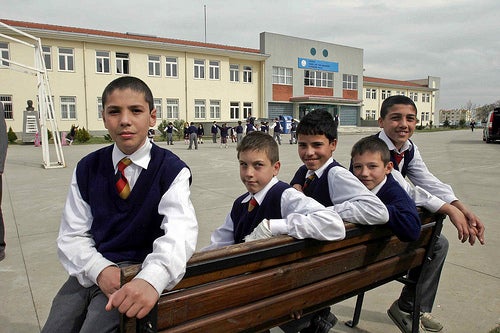 A recent OECD note on PISA results, School autonomy and accountability: Are they related to student performance?, suggests that greater school autonomy in decisions relating to curricula, assessments and resource allocation tend to be associated with better student performance, particularly when schools operate within a culture of accountability.
A recent OECD note on PISA results, School autonomy and accountability: Are they related to student performance?, suggests that greater school autonomy in decisions relating to curricula, assessments and resource allocation tend to be associated with better student performance, particularly when schools operate within a culture of accountability.
According to the piece, students tend to perform better in countries where schools have greater autonomy over what is taught and how students are assessed. Similarly, schools that enjoy greater autonomy in resource allocation tend to show better student performance than those with less autonomy. However, interestingly enough, in countries where there are no such accountability arrangements, schools with greater autonomy in resource allocation tend to perform worse.
In the OECD, school autonomy in allocating resources is greatest in the Czech Republic and the Netherlands. In these countries, 90% of the students attend schools that have the authority to hire and dismiss teachers and are responsible for formulating and allocating budgets with a regional or national education authority.
These OECD findings from cross-country analyses of student performance and questionnaires directed at school directors are remarkably similar to findings from our own work on school autonomy and accountability. In the World Bank’s latest report on school accountability, Making Schools Work, we show that school autonomy can improve student outcomes, according to the results from several impact evaluations, but only modestly so when not accompanied by strong accountability links.
We find that it is the alignment between autonomy and accountability that is important, and not necessarily the levels of education system development that are important in explaining superior academic performance, as argued in Does School Autonomy Make Sense Everywhere? Panel Estimates from PISA. It is not autonomy on its own – or in any way accountability on its own – that produces superior results.
The World Bank’s Education team is working on a System Assessment and Benchmarking Education for Results (SABER) tool, which will help assess country policies on School Autonomy and Accountability. As documented in a number of randomized trials, policy alignment is crucial for improved student performance. The cross-country analyses recently published using PISA data also shows this. Still, we need more evidence from randomized control trials.


Join the Conversation